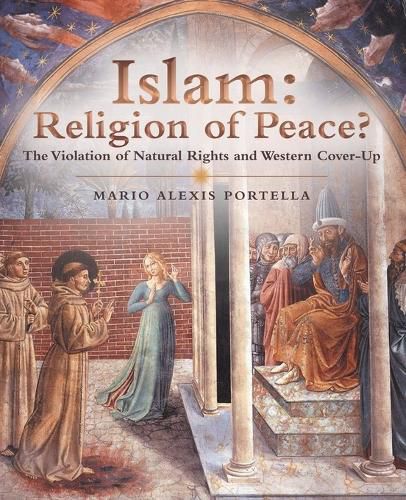Readings Newsletter
Become a Readings Member to make your shopping experience even easier.
Sign in or sign up for free!
You’re not far away from qualifying for FREE standard shipping within Australia
You’ve qualified for FREE standard shipping within Australia
The cart is loading…






This title is printed to order. This book may have been self-published. If so, we cannot guarantee the quality of the content. In the main most books will have gone through the editing process however some may not. We therefore suggest that you be aware of this before ordering this book. If in doubt check either the author or publisher’s details as we are unable to accept any returns unless they are faulty. Please contact us if you have any questions.
Eight hundred years ago, St. Francis of Assisi embarked on a mission to the port city of Damietta, Egypt, to try and convert Sultan al-Kamil to Christianity. While this did not come to fruition, both the sultan and the saint were able to have a peaceful dialogue and establish a mutual respect that is absent from the present-day polemics of Islam.
While many today hold that those who seek to create a universal caliphate through acts of terror in the name of Islam falsely represent their religion, they ignore the original Islamic texts that inspire these perpetrators. The Islamization of our society, however, does not just come from avowed terrorists but from various Islamic scholars and activists seeking to impose sharia law. As a result of the West disavowing its Greco-Roman and Judeo-Christian roots, government officials have catered to such injustices since they consider the petrodollar more valuable than the victims of violence. Consequently, they have capitulated our rights of free speech and religion to the point of classifying anyone who questions Islamists’ intentions as an Islamophobe. Islam: Religion of Peace? places Islam in its historical and sociopolitical contexts in order to better understand what has bred the Islamic threat facing today’s society, as well as how many of our political and church leaders have failed to address the problem, thereby creating more instability between both Muslims and non-Muslims. Author Mario Alexis Portella also proposes solutions whereby both peoples may enter into a meaningful discourse and establish harmony.
$9.00 standard shipping within Australia
FREE standard shipping within Australia for orders over $100.00
Express & International shipping calculated at checkout
This title is printed to order. This book may have been self-published. If so, we cannot guarantee the quality of the content. In the main most books will have gone through the editing process however some may not. We therefore suggest that you be aware of this before ordering this book. If in doubt check either the author or publisher’s details as we are unable to accept any returns unless they are faulty. Please contact us if you have any questions.
Eight hundred years ago, St. Francis of Assisi embarked on a mission to the port city of Damietta, Egypt, to try and convert Sultan al-Kamil to Christianity. While this did not come to fruition, both the sultan and the saint were able to have a peaceful dialogue and establish a mutual respect that is absent from the present-day polemics of Islam.
While many today hold that those who seek to create a universal caliphate through acts of terror in the name of Islam falsely represent their religion, they ignore the original Islamic texts that inspire these perpetrators. The Islamization of our society, however, does not just come from avowed terrorists but from various Islamic scholars and activists seeking to impose sharia law. As a result of the West disavowing its Greco-Roman and Judeo-Christian roots, government officials have catered to such injustices since they consider the petrodollar more valuable than the victims of violence. Consequently, they have capitulated our rights of free speech and religion to the point of classifying anyone who questions Islamists’ intentions as an Islamophobe. Islam: Religion of Peace? places Islam in its historical and sociopolitical contexts in order to better understand what has bred the Islamic threat facing today’s society, as well as how many of our political and church leaders have failed to address the problem, thereby creating more instability between both Muslims and non-Muslims. Author Mario Alexis Portella also proposes solutions whereby both peoples may enter into a meaningful discourse and establish harmony.